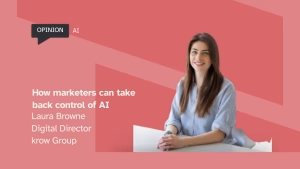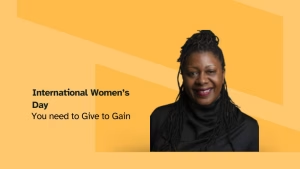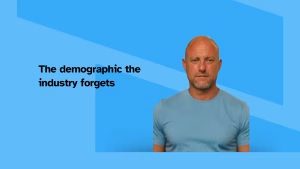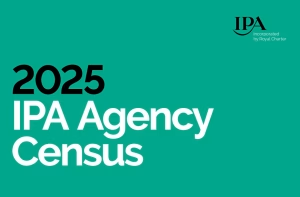By Megan Ashdown, Digital Account Director at The Kite Factory
Welcome to Factory Settings, a content series from some of the women in digital at The Kite Factory.
This series aims to myth-bust misconceptions about the
digital industry by showcasing the journey and talent of some of our fantastic
women in digital. You’ll hear from women with a wide range of experiences and
career paths – from Mohini Lakhani (Senior Digital Account Manager), who
quickly made the switch from a career in neuroscience to Digital Marketing when
she realised the lab life wasn’t for her; to Maria Tudor (Planner Buyer), who
studied a masters in digital marketing and has tried her hand at PR and comms
before settling on paid planning and buying.
They’ll share their perspectives on some of the most important things they have learned in their careers.
We live in a digital age. Phones, Smart TVs, Podcasts, music streaming… going through the day without using some sort of Digital media is nigh on impossible. But despite the complete integration of Digital into our day-to-day, when I say I work in Digital Media, the reaction is often a surprised (and highly pitched) “oh really!?”
This is mainly because “Digital” industries still have many stereotypes associated with them, conjuring up typecasts of avid coders and computer science degrees, a space for those enthusiastic about app design, website building, and bitcoin. And with only 20% of people enrolling in computer science courses being female, this “digital” connotation lends itself to male-dominated industries… The “oh really!?” reaction to my Digital focussed career starts to explain itself!
Focussing on broader stereotyping women face across the industry, there are two additional points that could be addressed to answer Gabby’s question of “What would you like to see from the industry to support women”.
A broader stereotype I believe women must overcome is being “Bossy”. I hate this word. “Bossy” is almost exclusively synonymous with women, and this is so prevalent that when looking up “bossy”. The example Collins Dictionary provides is “she remembers being a rather bossy little girl.”. To support women in Digital Media, we need to remove the stereotype of needing a computer science degree to succeed and the negative connotation of “bossy”. We need to champion strong female opinions and push for more women in leadership roles, embracing the variety of management styles we have to offer and the value added these bring. Showcase how “bossy” women are instrumental in improving business performance and culture.
On the flip side of “bossy”, and final stereotype we need to overcome is being “soft”. While we need to champion strong female opinions more, another concern for women in digital is losing out while taking time off for Maternity or family-related leave. In such a fast-moving industry, the support is lacking for women to remain up to speed during time off, which can lead to losing out on industry-defining brains in the long term when these successful and intelligent women potentially don’t return. I can count the mothers I’ve worked with across my career on one hand, which I find deeply concerning. The more support the industry can provide here, the better off we’ll be.
To return to my initial point of Digital specific stereotypes, at The Kite Factory, 61% of our digital department is female, with 0% of us boasting any official CompSci training. In fact, only 40% of us actively studied “anything to do” with Marketing before entering the industry. Our philosophy is to use “Heart, Art and Science” to inform our media activations and planning. And across the women in our team, our backgrounds move this philosophy to reality.
Heart – Women with an immediate passion for the industry. Marketing degrees & associated apprenticeships – 55%
Art –Social Sciences and their application. Psychology& Sociology, English, History, Geography – 28%
Science – Science-based education & Business management apprenticeships – 17%
So how did that end up happening? And why has The Kite Factory done this?
Transferable skills, that’s why.
As a teenager and into my early twenties, the transferable skills buzzword was prevalent in my life. My A levels were all firmly ensconced in humanities subjects that fall into the “it’ll be hard to get a job” category. We’re talking English, Philosophy & Ethics, Politics, and my favourite – History – which I studied at university. After graduating – and while looking for a job – I was frequently advised to “upsell my transferable skills.” 21-year-old me didn’t take this very seriously, believing it was something people just said to get into an industry that had nothing to do with what they’d studied.

Fast forward 6.5 years, and I’m working in digital marketing & media, which can be completely attributed to my practical application of the skills I’ve learnt throughout my life and education. At The Kite Factory, I head up one of our three Digital teams. Since my degree days, I’ve honed my transferable skills in a way that my day-to-day has developed from analytical essay writing to cross-channel strategy implementation, team management and internal process development. While these have been honed across my career (where I’ve worked at a mixture of Network and Independent agencies and primarily have specialised in cross-channel media solutions), I still consider it my transferable skills that were instrumental to getting me where I am today.
So what core skills am I talking about when it boils down to it, and where did I “transfer” them from?
Analysis of Data & Troubleshooting – History degree.
This gave me the skills to absorb and analyse data. While more technical day-to-day elements – such as Excel Skills, ad analysis and optimisations – were learnt on the job – my History degree taught me to evaluate cause and effect. It gave me the ability to pull insights from my digital reporting and enable me to look past the numbers to focus on insight to identify & investigate the narrative relating to ongoing performance. I was then able to utilise these understandings to inform longer-term strategies and short-term tactics. This is one of the key elements that has allowed me to progress in digital media and is essential for anyone looking to start out in the industry.
Time management & Discipline – Homework, Internships, Jobs, Sports Training.
This again was honed throughout my career, but balancing work, life and education gave me the initial skills of time management and self-discipline to succeed in a fast-moving industry such as digital. And when we say fast moving – we mean fast moving. Agency life is so varied, and your day-to-day can encompass a vast array of tasks, including reporting, optimisations, media-planning, team management, finance, setups, training, campaign wrap-ups, response to briefs and client comms, to name but a few. Then think about how at a cross-channel Indie agency, you’re doing all of that across various channels and clients daily. Having good time management, consequently, is essential when adapting to agency life.
Communication & Compromise – Relationships, of all kinds.
This is one of the most underrated transferable skills. Relationship building with clients, colleagues and suppliers will help inform your progression in digital media. Developing this skill – as I’ve moved from a purely operational to a managerial role has been one of the most rewarding parts of my career.
Adaptability and Reactiveness
The pandemic taught me this skill in record speed, both in and out of the workplace. Working in retail and e-commerce sectors when the pandemic hit meant quick reaction times and quick application of tactical changes, encompassing everything from budgets to creativity. For two years, the climate dictated that my ear be kept close to the ground to allow for speedy adaptation. As the ad world shifts its focus to digital innovation, reactive marketing and adaptability are only going to become more important.
Needless to say, all these causes are completely subjective to me. However, there’s a myriad of experiences that can inform how each of these skills can be honed. As I’ve progressed throughout my career, my belief has been cemented that success will come from logically applying your relevant experiences and skills to build up expertise, as opposed to having vast amounts of theoretical knowledge which you can’t apply to your role.
Digital Media and Marketing is such an exciting industry to be in. It’s diverse, it’s complex, and it’s never the same for more than five minutes. There’s always something new to learn, and with these industry characteristics in mind, we must remember that we each have unique and nuanced skills. Capitalise on these, own them. Remember that a combination of minds in the room is the best way to foster growth and ambition; you and your mind are an integral part of that.
My point, in a nutshell, is this. If you’re thinking about working in Digital – don’t let not having the “right” experience hold you back. Go for it. Champion your transferable skills.
Next in the Series is Senior Digital Account Manager Mohini Lakhani, my question to her is, “What support networks, both at The Kite Factory and in the wider industry, have been most useful?”










